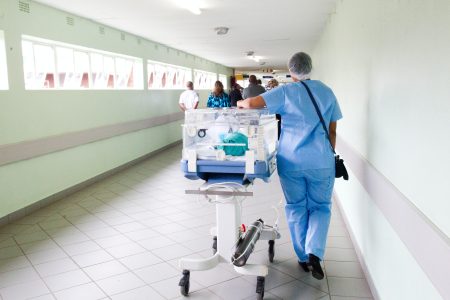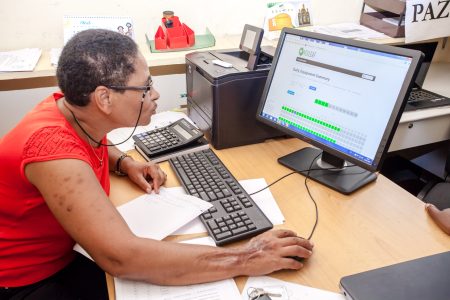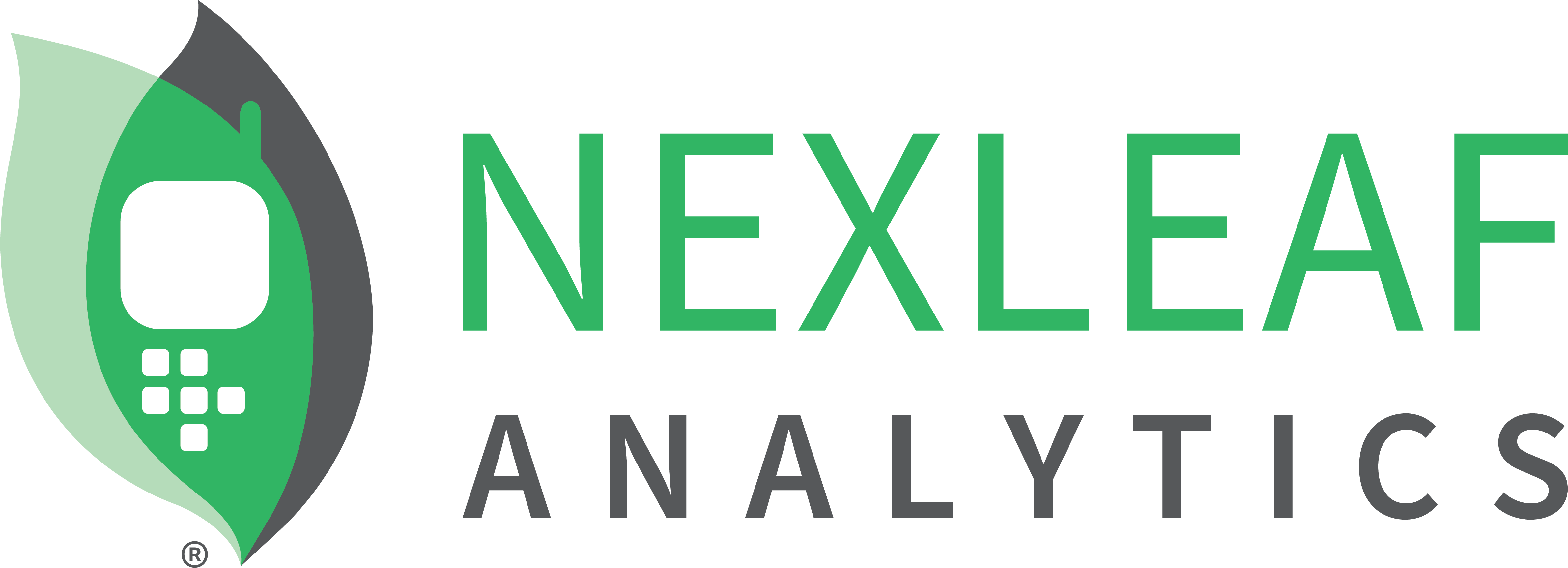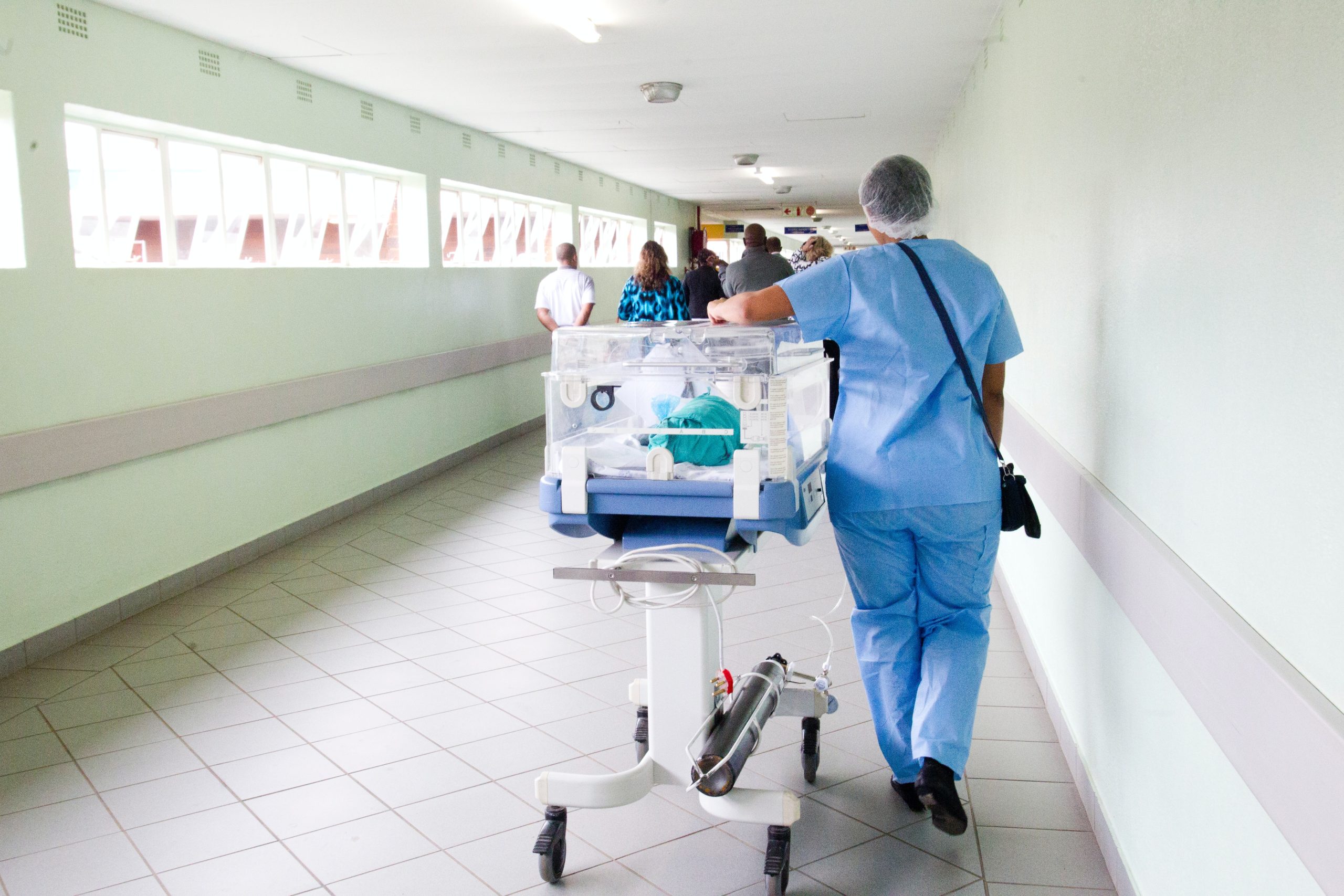by Eric Buckley, Director of Oxygen Engineering, Build Health International, and Ednah Kiome, Director of Emerging Products, Nexleaf Analytics
According to the World Health Organization, biomedical personnel – biomedical equipment technicians and engineers, also known as BioMeds – are essential healthcare workers. So why do those of us who work in global public health hear so little about them?

The Burden on BioMeds: Many Responsibilities, Few Resources
BioMeds are charged with maintaining, repairing, and replacing the medical equipment, technology, and facility systems that sustain healthcare services. Whether they’re repairing donated medical devices or refueling diesel generators, biomedical personnel make critical decisions every day that impact patient care. Clinicians rely on BioMeds to fix broken neonatal incubators, maintain oxygen plants, replace parts in vaccine refrigerators, and perform planned preventive maintenance for clinic solar panels. Without well-trained and adequately-resourced BioMeds, healthcare facilities are literally operating in the dark.
However, BioMeds are often overburdened, and their needs and roles are deprioritized in the hierarchy of healthcare facility needs. Due to budget constraints, lengthy budget cycles, and poor supply chains for spare parts, BioMeds often cannot get the resources they need to fix malfunctioning equipment. They also lack professional development resources, as well as continuing education and training, which places limitations on their abilities to perform their tasks. Under-investment in BioMeds hinders their professional advancement and limits their performance – and the hospital’s equipment and power suffer in turn.
Despite their critical role, BioMeds in low- and middle-income country (LMIC) health systems are under-trained, under-equipped, and under-resourced. These disparities create tension within health facilities and health systems, not to mention the negative health outcomes that result when equipment breaks indefinitely or the power goes out during surgery. BioMeds – and patients – deserve more.
Designing Solutions with BioMeds Front of Mind
Build Health International (BHI) takes active steps to engage with BioMeds through comprehensive training and educational opportunities. Since 2022, BHI has developed a training program on oxygen delivery systems and has trained over 1,000 participants in 20 countries. Trainings focus on preparing BioMeds to maintain and troubleshoot medical oxygen-generating pressure swing adsorption (PSA) plants. BioMeds also receive tool kits so that they can continue to maintain and repair their oxygen plants. In addition to maintenance training, BHI also delivers training to hospital managers and administrators regarding these PSA plants, so that hospital leadership can support their BioMeds in keeping medical oxygen flowing at their facility, through planning for budgeting and procurement for tools and spare parts. BHI offers post-training support remotely over WhatsApp, promoting a network of support by BioMeds for BioMeds.
At Mbarara Regional Referral Hospital (MRRH) in Uganda, BHI worked with the biomedical engineering department to identify critical gaps in medical equipment and maintenance capacity, and delivered training on troubleshooting key equipment and on the maintenance of their medical oxygen plant. Over the next year, BHI will continue to implement operational improvements with the BioMeds at MRRH, including inventory management systems, spare parts and consumables procurement planning, and collaboration with clinical staff. BHI will also deliver additional technical training on anesthesia machines, ventilators, and diagnostic devices, which have been identified by the hospital staff as the largest area of need.

Nexleaf works with Ministries of Health to build and implement technology that accelerates the digital transformation of health equipment management. Input and feedback from BioMeds is central to Nexleaf’s work. Based on a direct request from BioMeds in Kenya, Nexleaf implemented real-time automated alerts for health workers to track generator usage, ensuring sufficient fuel and preventing deadly hospital blackouts. These power alerts enable BioMeds to respond to grid outages instantly and maintain backup power proactively, so hospital power is consistently available and reliable.
Nexleaf also recently incorporated an AI-enabled chatbot into our vaccine equipment management platform. Health workers charged with maintaining, repairing and replacing equipment can now find out which health facilities have broken vaccine refrigerators simply by asking, in English or Swahili. This feature is valuable for BioMeds, who often manage multiple facilities and need timely information to prioritize repairs and maintenance. By leveraging AI, Nexleaf simplifies complex workflows, allowing BioMeds to focus on what matters most. Nexleaf is working to expand this platform with training modules to help BioMeds troubleshoot and perform basic repairs on vaccine refrigerators. Technology alone is not enough – BioMeds also require skills and knowledge to maintain equipment effectively. These modules will be integrated into Nexleaf’s platform, providing on-demand learning opportunities tailored to the needs of BioMeds. Nexleaf’s Connected Clinic approach recognizes that while technology and infrastructure are crucial, a well-equipped and AI-ready health workforce is also required to ensure that sophisticated equipment is maintained, and that every health facility stands ready to save lives.
BioMeds are critical personnel in a health system, and as essential health workers must be properly compensated, trained, and equipped in order to do their jobs well. Their role, while often behind the scenes, is vital to patient care. Join us in advocating for resources for BioMeds.
This post is a collaboration between Build Health International and Nexleaf Analytics.
Build Health International designs and builds healthcare solutions in resource- constrained contexts and educates and trains biomedical professionals, as well as healthcare administrative staff, to understand the important roles of maintaining and strengthening oxygen infrastructure. Since 2022, BHI has trained over 1,000 people in facilities throughout sub-Saharan Africa, Asia, Latin America and the Caribbean, and the Western Pacific.
Nexleaf Analytics partners with countries to equip health workers with the data, skills and tools they need to keep equipment running, protect healthcare infrastructure, and save more lives. Nexleaf’s real-time equipment monitoring solutions protect equipment in over 26,000 clinics across 33 countries.

